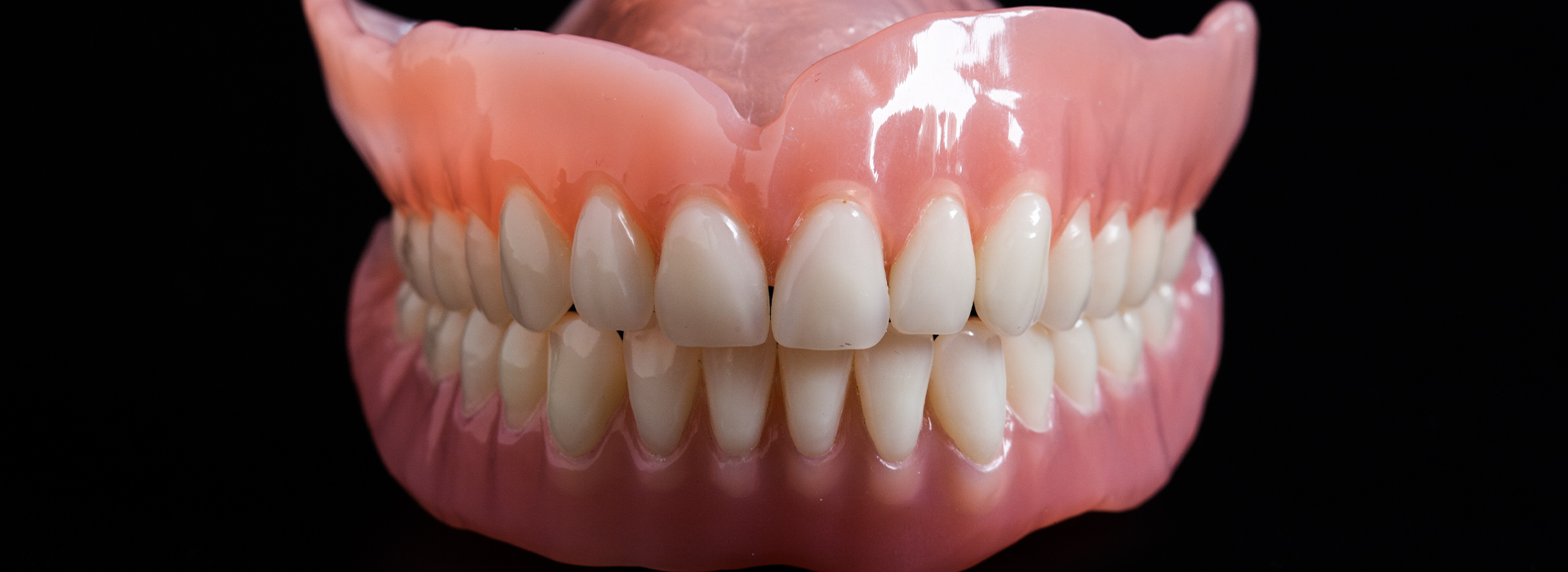After you have received your denture, it is important to follow these recommendations to ensure its success:
- Adjusting to wearing a new denture
Getting used to wearing a new denture, especially a full denture, can take a little time. It’s not unusual to need some minor adjustments as you begin to speak, chew, and function with your new teeth. It can take a few adjustments to fit completely and feel comfortable. If you have a sore spot, try to wear the denture at least the day before your adjustment visit. In this way, we can see exactly where we need to relieve the area causing your irritation.
- More saliva than usual
One of the natural responses to a new denture is for your mouth to produce more saliva. Not to worry, this is only a temporary reaction. The flow of saliva gradually decreases back to a normal level.
- Speaking with ease
While it may seem challenging to speak clearly at first with a new denture, that feeling will pass within a few days. It’s important to keep talking, as usual, to allow yourself to adapt to your new set of teeth. You can help things along by reading some passages from printed materials or a computer out loud.
- Getting used to eating with a denture
If this is your first denture, it can also take some time to adapt to eating with your new prosthesis. Getting used to eating with a full denture is typically more challenging than doing so with a partial denture. It’s best to start with soft foods and to avoid chewing on just one side. Your tongue, lips, cheeks, and soft tissues will soon adapt to chewing with your new denture, and from then on, you’ll be able to eat with ease. To protect your denture, avoid chewing ice or other hard objects. If small pieces of food work their way under your denture while you eat, simply remove your denture and rinse it with water.
- Brushing and flossing
Brush your tongue, gums, palate, and any remaining teeth at least twice a day to keep them free of plaque and bacteria. Brushing also massages the gums and keeps your breath fresh. In addition, we may recommend dental floss, mouth rinses, or other cleaning aids.
- Cleaning your denture
- It’s essential to keep your denture clean! Rinse your dentures after eating and brush them daily. In this way, you can prevent stains and bacteria from accumulating on your new set of teeth. It helps to use a brush designed for dentures. Also, remember to soak your dentures in water when you’re not wearing them, and at least once a week in a denture cleaner.
- Brush any remaining teeth as well as your gums to keep them clean and the tissues healthy and firm. If you wear an upper denture, rinse and gently clean the roof of your mouth as well.
- Sleeping and storing your denture
Unless we tell you otherwise, remove your denture for sleeping or for at least 6 to 8 hours a day. This practice gives the gums and the jawbone a chance to rest, helping to prevent irritation and infection as well as bone resorption (shrinkage). Store your denture in water or a soaking solution whenever it is out of your mouth, so it does not dry out.
- Added stability
Due to the status of the underlying tissues and other factors, there are some cases where full dentures benefit from additional means of retention. While denture adhesive is often sufficient, full dentures that are implant-supported or clip onto special attachments offer added stability and retention. If you are having trouble keeping your denture in place, please give our office a call so we may assess whether additional retentive mechanisms are indicated.
- Follow-up care
Maintaining oral health and overall well-being involves routine checkups and care. At these visits, we not only check the fit and condition of your dentures but we also perform a comprehensive exam to check the status of any remaining teeth as well as assess the health of all of the soft and hard tissues in and around the oral cavity.
- Relines
Over time, the tissues supporting the denture can change. As the shape and contours of these tissues shrink or remodel, your denture may not fit as comfortably or feel as stable as it once did. A separate procedure, which is known as a reline, may be recommended.
When to call us
Call us right away if your denture breaks, cracks, or chips, or if a tooth becomes loose, so we can properly repair it. Also call us if your bite feels uneven, your dentures become loose, you have sore spots, irritation, swelling, or discomfort, or if you have any questions or concerns.

